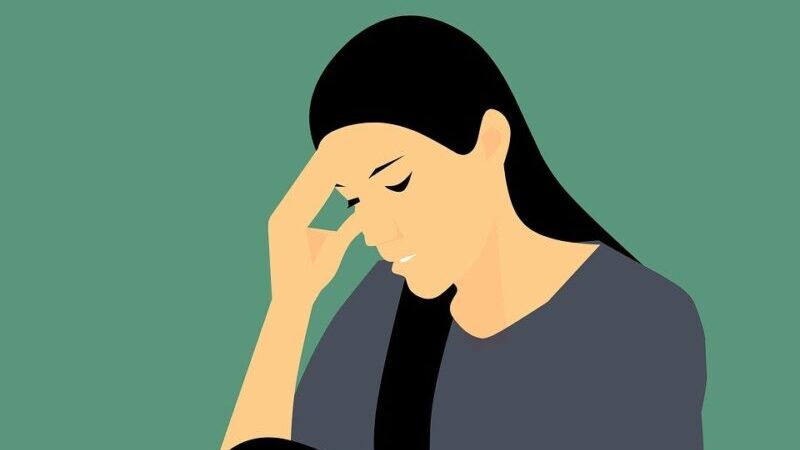Disclosure: This post may contain affiliate links, meaning we get a commission if you decide to make a purchase through our links, at no cost to you. Please read our disclosure for more info.
Your sleeping pattern has changed now since you’re staying up all night trying to soothe your baby’s crying. Anxiety kicks in a lot more often as you have no idea what to do. Not to mention, your hormones have dropped massively, creating an imbalance that contributes even more to your stress.
When a mother gives birth, it’s completely normal for them to experience what people call the “baby blues.” But, if these “blues” keep getting worse, could they be possible signs of postpartum depression? What exactly are the signs of postpartum depression?
Keep reading to find out.
In This Post:
1. Withdrawing Yourself Entirely
A new mother can easily get sucked into her own little world where she forgets about everything and everyone as she’s so busy with her newborn baby. This can happen and only for a short period of time until she gets the hang of things.
The issue would be if you find yourself intentionally isolating yourself from anyone, including your family and closest friends, due to any severe feelings of depression or anxiety. If your sadness is consuming you to the point where you push everyone away and it just keeps getting worse, then it might be one of the possible signs of postpartum depression.
2. Thoughts on Harming Your Baby
Experiencing mood swings is a normal process of having a baby. After a short while though, it’s most common for mothers to begin to find joy in their new role as a mother and to develop more love for their newborn.
However, if these negative emotions intensify and worsen with time, and make you think about harming your baby simply because you can’t seem to cope with the stress any longer, contacting a doctor right away is the best choice.
3. Suicidal Thoughts
Not just thoughts about harming your baby but perhaps thoughts about harming yourself might begin to creep in. If the depression is draining your will to live and you often find yourself thinking about death or about taking your life away, then help should be sought, as this is also an early sign of postpartum depression.
4. Not Being Able to Care for Your Newborn
This doesn’t only involve not knowing what to do when your baby is crying. This also involves you not wanting to take responsibility for your newborn anymore.
You might also start developing a sort of resentment or feeling of rejection towards your baby which intervenes in not being able to care for the baby’s needs and struggling to look after it. If this is the case, it might be time to speak with your doctor.
5. Not Being Able to Make Decisions
One thing is feeling a bit hesitant when it comes to making certain choices towards the care of your newborn baby, as you’re still figuring things out. Then there’s the inability to make any decision, even the simple ones such as not being able to decide whether or not you should change your baby’s diaper or if you should shower.
Your mind might be feeling this heavy sensation of fog, making it highly difficult for you to think straight and make decisions that end up interfering with your day-to-day life. If you’re experiencing this, then you’re probably facing a sign of postpartum depression.
Seeing Signs of Postpartum Depression Means It’s Time to Get Help
Admitting to yourself that you might be suffering signs of postpartum depression is not an easy thing to do. This is, however, the most important step of the recovery process.
Don’t feel ashamed or embarrassed to have to deal with this, as it is a common problem and thankfully, help is available to treat postpartum depression. What kind of help? You can learn more here about depression as well the different kinds of therapies and help available.
You Can Beat Postpartum Depression
You will recover from this without a doubt. Every case of postpartum depression is different, which means treatments may vary, as well as the time of recovery. Some people take a little longer than others but that’s completely okay.
As long as you take the step of seeking out help, you’ll be on the path to recovery.
Keep reading our blog for more helpful tips.

